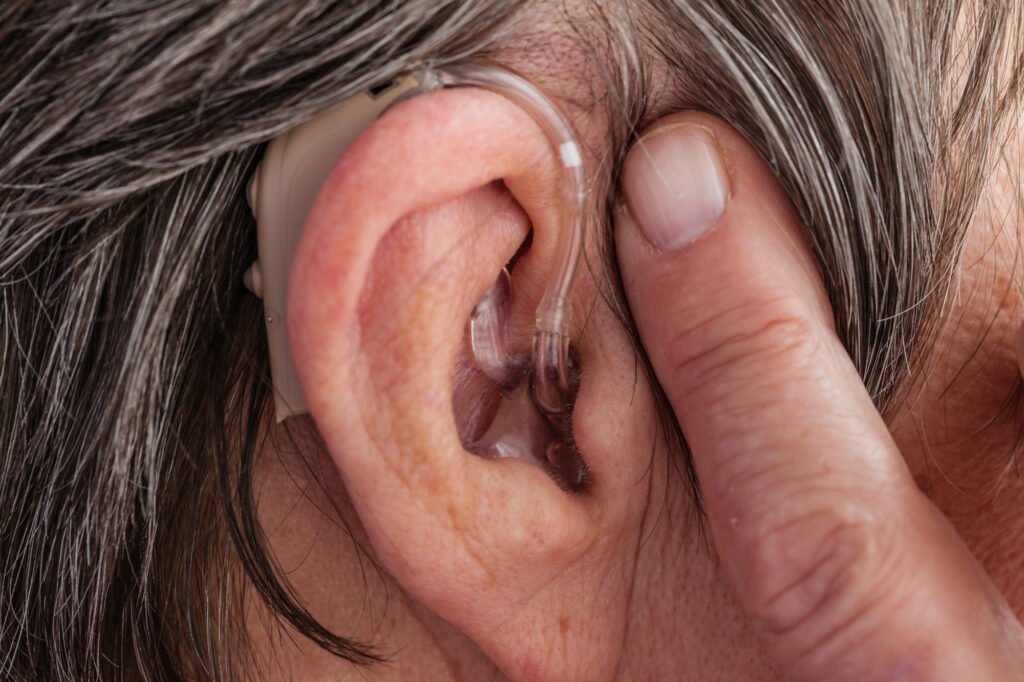Do you have possible hearing loss on your mind but aren’t sure how to go about assessing your situation?
Then you must pay attention to how often you get a hearing check. As you can guess, it’s part of the best overall strategy for figuring out how you’re doing in this often-ignored area.
So what does it entail? Below, we’re going to break down everything you need to know about this necessary step in preserving and restoring your hearing.
Let’s get right into it!
People Over the Age of 60
People over the age of 60 should get their hearing checked regularly. It is recommended that those aged over 65 have hearing tests every two to four years if no hearing problems are present. The hearing test involves determining the range of frequencies and levels that an individual can detect.
A series of tests are completed that monitor acuity, loudness, and sensitivity to low and high frequency. A qualified audiologist assesses the results to diagnose any hearing loss. This also determines the best course of treatment.
Hearing Aids Need to Be Checked
It is recommended to get your hearing checked every three years. This is to detect any changes in hearing that may have occurred since the previous hearing assessment.
A hearing assessment typically involves aural tests. This is a look inside the ear to check for physical abnormalities. They also do a hearing aid evaluation. This ensures the most accurate result in identifying any problems with hearing or communication.
For those wearing hearing aids, an additional hearing check appointment should be made after the first one to ensure that the hearing aid is properly adjusted, fitted, and programmed to provide the desired outcome. An audiologist can adjust it so that it meets the individual’s needs. This will ensure maximum benefit from wearing the aid.
People With Hearing Loss
People with hearing loss should check their hearing at least once a year. This can help ensure their hearing aids are providing adequate support for their level of hearing.
Getting a hearing check involves an audiometric test. This is a hearing test that measures a person’s ability to hear sounds of different volumes and pitches.
During the hearing test, a series of tones will be presented through headphones or a testing booth. This is usually done while the tester moves a knob or other tool to adjust the volume.
The person being tested will indicate when they hear the sound. The results of the hearing test, combined with the individual’s feedback, will provide a better understanding of how the hearing aid is performing at that stage.
When You Suspect You Have Hearing Loss
When you suspect you have hearing loss, you should get a hearing check-up as soon as possible. A regular hearing test should be done at least once per year.
However, people over the age of 55 should have their hearing checked more often. A hearing check includes a physical examination of the ear.
An audiologist looks for blockages, abnormalities, and signs of infection, as well as a standard hearing test using specialized equipment. The hearing test measures how well you hear various tones and frequencies.
The results are then compared to a normal range for the population. Depending on the results of the test, the audiologist may recommend further tests or treatments to correct your hearing loss.
Screening for Other At-Risk Groups
Getting a hearing check is an important step in choosing the best hearing aids for your specific needs. The frequency of hearing checks should depend on the severity of your hearing loss and any other health concerns that may be related to it.
Part of screening for other at-risk groups for hearing loss is having a hearing check at least once a year. It can vary depending on the age of the person, previous hearing tests, and current lifestyle.
Children
With regard to children, it is advised that they have their hearing checked at least once a year. More specifically when they are in the first three years of life.
It is important because hearing loss early on can hurt a child’s language and development. A hearing check involves a variety of tests.
From basic auditory tests to more complex examinations with medical equipment such as an audiometer. The tests can measure the child’s hearing ability in different frequencies and through different pathways, such as bone and air conduction.
Depending on the results, the child may be referred for further testing and treatment.
People Who Are Exposed to Loud Noises
People exposed to loud noises should have their hearing checked regularly. This is because exposure to high decibel levels can cause irreversible damage to the delicate cells in your inner ear.
It’s recommended that people exposed to loud noise get a hearing screening at least once every year. A professional hearing check involves the use of specialized equipment and a series of different tests.
These tests measure the ability to distinguish certain frequencies. If any damage is detected, the audiologist will recommend appropriate solutions.
This can include hearing aids or soundproof headphones that fit safely and comfortably. Regularly screening your hearing can be the difference between being able to continue to enjoy noise safely or suffering permanent damage.
How Often Should I Get a Hearing Check
Regular testing is important to maintain your ability to hear. Hearing checks should be done regularly, ideally by qualified professionals.
It’s important to monitor your hearing health and get regular check-ups to catch any changes over time. If it’s been a while since your last hearing check, don’t wait.
Contact a hearing healthcare provider today to set up an appointment.
If you’d like to read more articles, visit our website today.

